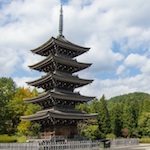| Hot Topics | |
|---|---|
The End of Shinsuke Shimada?
98 posts
• Page 2 of 4 • 1, 2, 3, 4
It's actually not trivial. Shimada wasn't especially popular in the industry, mainly because he was such an arsehole to a lot of people, but he was a reliable banker. With so many long-running shows being cancelled and ratings dropping through the floor, there was a large vested interest in keeping him in the business. He's the lynchpin for six shows on TV right now and the stations haven't groomed anyone else to fill that vacuum.
The fact his actions could no longer be defended means that no-one who wants a mainstream career in entertainment will feel comfortable about getting cosy with gangsters. It doesn't mean they'll disappear from the business overnight but the evidence trails are more numerous these days. Email messaging leaves records and anyone can take a sneaky picture of you with a mobster.
It's clear that the evidence of Shimada's involvement with the mob was discovered by the Osaka police during a separate investigation. No-one has yet suggested that Shimada did anything illegal so there's no reason why his involvement should have become public. However, the police leaked the news and the message is that they are prepared to do the same again in the future.
The fact his actions could no longer be defended means that no-one who wants a mainstream career in entertainment will feel comfortable about getting cosy with gangsters. It doesn't mean they'll disappear from the business overnight but the evidence trails are more numerous these days. Email messaging leaves records and anyone can take a sneaky picture of you with a mobster.
It's clear that the evidence of Shimada's involvement with the mob was discovered by the Osaka police during a separate investigation. No-one has yet suggested that Shimada did anything illegal so there's no reason why his involvement should have become public. However, the police leaked the news and the message is that they are prepared to do the same again in the future.
-

Mulboyne - Posts: 18608
- Joined: Thu May 06, 2004 1:39 pm
- Location: London
Any bets on him making another comeback? He did it once, and as Mulboyne stated, he really didn't do anything illegal, so who knows. 6 shows is a lot to replace. I guess we will be stuck with more Owarai comedians.
Jacques Plante: "How would you like a job where, every time you make a mistake, a big red light goes on and 18,000 people boo?"
-

canman - Maezumo
- Posts: 1765
- Images: 0
- Joined: Thu Jul 25, 2002 11:08 pm
- Location: Hachinohe
canman wrote:Any bets on him making another comeback? He did it once, and as Mulboyne stated, he really didn't do anything illegal
...that we know about
SDH "cut your dick off! It's only going to get you in more trouble!"
-

matsuki - Posts: 16047
- Joined: Wed Feb 02, 2011 4:29 pm
- Location: All Aisu deserves a good bukkake
I think it's pretty clear that he wants to quit. He's been wanting to get out for some time.
He has other things on his plate, and this is a perfect excuse.
He has other things on his plate, and this is a perfect excuse.
_/_/_/ Phmeh ... _/_/_/
-

Yokohammer - Posts: 5090
- Joined: Tue Sep 30, 2008 6:41 pm
- Location: South of Sendai
Yokohammer wrote:I think it's pretty clear that he wants to quit. He's been wanting to get out for some time.
He has other things on his plate, and this is a perfect excuse.
Don't kill my dream hammer, he's going to jail! It's only a matter of time!
SDH "cut your dick off! It's only going to get you in more trouble!"
-

matsuki - Posts: 16047
- Joined: Wed Feb 02, 2011 4:29 pm
- Location: All Aisu deserves a good bukkake
-

Dreamy_Peach - Maezumo
- Posts: 184
- Joined: Fri Aug 05, 2011 1:54 pm
- Location: Tokyo
Dreamy_Peach wrote:That says a lot about Japanese TV.
yeah, its for retards.
gaijin, gods among men
takechanpoo wrote:
> you gaijin smell nasty very very very much.
> take a bath every day.
> if you dont,go home fuckin gaijin.
> Japan is not rehabilitation facilities of banished white ugly gaijins like you.
> fuck off!!!
takechanpoo wrote:
> you gaijin smell nasty very very very much.
> take a bath every day.
> if you dont,go home fuckin gaijin.
> Japan is not rehabilitation facilities of banished white ugly gaijins like you.
> fuck off!!!
-

MrUltimateGaijin - Maezumo
- Posts: 339
- Images: 4
- Joined: Sat Jan 22, 2005 9:52 pm
- Location: Yokohama
canman wrote:Any bets on him making another comeback? He did it once, and as Mulboyne stated, he really didn't do anything illegal, so who knows. 6 shows is a lot to replace. I guess we will be stuck with more Owarai comedians.
If they made Tousouchuu: Run For Money a weekly program, I would totally watch that shit. Japanese TV has a few great hits, problem is that bottom basement budget means the good stuff is essentially a once-every-six-months special event, like Sasuke.
Of course, Japan somehow manages to be more celebrity obsessed than the US when it comes to TV, so we see the same faking faces all day every day. Even on game shows.
THE RADIOACTIVE FG!
- Kanchou
- Maezumo
- Posts: 1290
- Joined: Mon Jul 28, 2003 8:03 am
- Location: Fuc'kedashima
but JTV is based on variety shows, the US is still not like that
gaijin, gods among men
takechanpoo wrote:
> you gaijin smell nasty very very very much.
> take a bath every day.
> if you dont,go home fuckin gaijin.
> Japan is not rehabilitation facilities of banished white ugly gaijins like you.
> fuck off!!!
takechanpoo wrote:
> you gaijin smell nasty very very very much.
> take a bath every day.
> if you dont,go home fuckin gaijin.
> Japan is not rehabilitation facilities of banished white ugly gaijins like you.
> fuck off!!!
-

MrUltimateGaijin - Maezumo
- Posts: 339
- Images: 4
- Joined: Sat Jan 22, 2005 9:52 pm
- Location: Yokohama
-

Catoneinutica - Posts: 1953
- Joined: Tue Jan 24, 2006 12:23 pm
Hunt her with an explosive harpoon for scientific purpose...
1- TIJ after all
2-That land monster is quite close to mobydick... only dumber...
1- TIJ after all
2-That land monster is quite close to mobydick... only dumber...
-

Coligny - Posts: 21824
- Images: 10
- Joined: Sat Jan 17, 2009 8:12 pm
- Location: Mostly big mouth and bad ideas...
MrUltimateGaijin wrote:but JTV is based on variety shows, the US is still not like that
Jerry Springer ?
Daily Show ?
...
Fox News...
...
-

Coligny - Posts: 21824
- Images: 10
- Joined: Sat Jan 17, 2009 8:12 pm
- Location: Mostly big mouth and bad ideas...
MrUltimateGaijin wrote:but JTV is based on variety shows, the US is still not like that
The U.S. used to be like that.
Carol Burnett Show, HeeHaw, Dean Martin Show, Laugh-In
There were more, but the U.S. grew past it.
I will not abide ignorant intolerance just for the sake of getting along.
-

American Oyaji - Posts: 6540
- Images: 0
- Joined: Sun Oct 20, 2002 9:20 pm
- Location: The Evidence of Things Unseen
American Oyaji wrote:The U.S. used to be like that.
Carol Burnett Show, HeeHaw, Dean Martin Show, Laugh-In
There were more, but the U.S. grew past it.
SNL ?
[YT]WhwbxEfy7fg[/YT] [YT]lQlIhraqL7o[/YT]
[YT]X0DeIqJm4vM[/YT] [YT]NisCkxU544c[/YT]
-

Coligny - Posts: 21824
- Images: 10
- Joined: Sat Jan 17, 2009 8:12 pm
- Location: Mostly big mouth and bad ideas...
LOL! I don't really like SNL, so I didn't think of it.
I will not abide ignorant intolerance just for the sake of getting along.
-

American Oyaji - Posts: 6540
- Images: 0
- Joined: Sun Oct 20, 2002 9:20 pm
- Location: The Evidence of Things Unseen
well... a lot of famous people came from SNL and for the most part were all... funny.
this JTV shit is the same shit, brainless/titless/assless/jaggertooth talento, stupid guys slapping each other on the head, guys dressing as girls, girls eating food and saying ehhh, oishiii!!, guys getting naked, trannys...
just never ends with JTV
this JTV shit is the same shit, brainless/titless/assless/jaggertooth talento, stupid guys slapping each other on the head, guys dressing as girls, girls eating food and saying ehhh, oishiii!!, guys getting naked, trannys...
just never ends with JTV
"I thought what I'd do was, I'd pretend I would pull out, but won't."
-

IparryU - Maezumo
- Posts: 4285
- Joined: Thu Jun 04, 2009 11:09 pm
- Location: Balls deep draining out
Yes, there is a lot of shit TV produced in the US. I'm even willing to give Japan a pass on their shitty comedy shows since humor doesn't translate well but get back to me when Japan has made anything like The Sopranos or Breaking Bad.
Faith is believing what you know ain't so. -- Mark Twain
-

Samurai_Jerk - Maezumo
- Posts: 14387
- Joined: Mon Feb 09, 2004 7:11 am
- Location: Tokyo
Samurai_Jerk wrote:Yes, there is a lot of shit TV produced in the US. I'm even willing to give Japan a pass on their shitty comedy shows since humor doesn't translate well but get back to me when Japan has made anything like The Sopranos or Breaking Bad.
Maybe I haven't been here long enough, but you maybe onto something. Many TV shows have become a part of American culture, even though they're only seen in reruns for the past 20-30-40 years. Shows like All in the Family, and MASH tackled social and global issues, which no J-TV show (even today)could even take a glimpse at. This may be slightly explained by the mono-culture in Japan and the lack of a 1960s "revolution" in Japan.
It seems that J-TV (with the exception of documentaries) is geared to five or six types of fodder: 1) owarai, 2) variety shows with the same guests, 3) food shows (which I can deal with), 4) muzak shows, 5) police dramas, and 6) the person who must ganbarou, fail, and ganbarou again in order to learn a lesson about life, which is ganbarou, gaman, and shouganai.
Takechanpoo:
;)"Yeah, I've been always awkward toward women and have spent pathetic life so far but I could graduate from being a cherry boy by using geisha's pussy at last! Yeah!! And off course I have an account in Fuckedgaijin.com. Yeah!!!"
-

Iraira - Maezumo
- Posts: 3978
- Joined: Tue Jun 06, 2006 11:22 am
- Location: Sitting across from an obaasan who suffers from gastric reflux.
Iraira wrote:It seems that J-TV (with the exception of documentaries) is geared to five or six types of fodder:
1) owarai,
2) variety shows with the same guests,
3) food shows (which I can deal with),
4) muzak shows,
5) police dramas, and
6) the person who must ganbarou, fail, and ganbarou again in order to learn a lesson about life, which is ganbarou, gaman, and shouganai.
"I thought what I'd do was, I'd pretend I would pull out, but won't."
-

IparryU - Maezumo
- Posts: 4285
- Joined: Thu Jun 04, 2009 11:09 pm
- Location: Balls deep draining out
but get back to me when Japan has made anything like The Sopranos or Breaking Bad.
or the Wire.
or the Simpsons.
or any decent drama, documentary on wildlife, nature, history, economics....
-

Dreamy_Peach - Maezumo
- Posts: 184
- Joined: Fri Aug 05, 2011 1:54 pm
- Location: Tokyo
Iraira wrote:Maybe I haven't been here long enough, but you maybe onto something. Many TV shows have become a part of American culture, even though they're only seen in reruns for the past 20-30-40 years. Shows like All in the Family, and MASH tackled social and global issues, which no J-TV show (even today)could even take a glimpse at. This may be slightly explained by the mono-culture in Japan and the lack of a 1960s "revolution" in Japan.
Have you spoken to or seen someone born after the end of the Vietnam war ? Because there have been quite some good show made after M.A.S.H. ya know...
Tour of duty, The Simpsons, X-Files(*), the New BSG (who was incredibly powerfull when watched parralel to the guantanamo/abu grahib clusterfuck). More minor but still picturing well their era (read, fooking stuck in the cold war, no kid born after 1990 will be able to understand the context): Airwolf, the Equalizer (with an awesome Edward Woodward).
(*) If you prefer staying in your time capsule, Try to catch the english tv show "Doom Watch" it's a 60' era wonder who share a lot of common feature, while being much more down to earth and without weapon grade cock blocking redhead.
Now in defense of them japanjins... Watch again the first episode of the first season of Space Pirate Captain Harlock. It's the most hamfisted criticism of japanese society seen since... well... forever I think...
For a much more recent approach of current madness, "Better of Ted" there is at least 2 season available. It's a story of an overachiever BOSS'ing in a Megacorp(tm) (actually Veridian Dynamic) doing anything including trying to weaponize pumpkins, totally nonsensical but ringing sooo truee...
-

Coligny - Posts: 21824
- Images: 10
- Joined: Sat Jan 17, 2009 8:12 pm
- Location: Mostly big mouth and bad ideas...
Coligny wrote:Have you spoken to or seen someone born after the end of the Vietnam war ? Because there have been quite some good show made after M.A.S.H. ya know...
Tour of duty, The Simpsons, X-Files(*), the New BSG (who was incredibly powerfull when watched parralel to the guantanamo/abu grahib clusterfuck). More minor but still picturing well their era (read, fooking stuck in the cold war, no kid born after 1990 will be able to understand the context): Airwolf, the Equalizer (with an awesome Edward Woodward).
(*) If you prefer staying in your time capsule, Try to catch the english tv show "Doom Watch" it's a 60' era wonder who share a lot of common feature, while being much more down to earth and without weapon grade cock blocking redhead.
Now in defense of them japanjins... Watch again the first episode of the first season of Space Pirate Captain Harlock. It's the most hamfisted criticism of japanese society seen since... well... forever I think...
For a much more recent approach of current madness, "Better of Ted" there is at least 2 season available. It's a story of an overachiever BOSS'ing in a Megacorp(tm) (actually Veridian Dynamic) doing anything including trying to weaponize pumpkins, totally nonsensical but ringing sooo truee...
I'll confess that I really don't watch much TV, except for sports. By avoiding the tube, I can spend more time chasing and subduing females, and then ordering them to put the lotion back in the bucket.
Takechanpoo:
;)"Yeah, I've been always awkward toward women and have spent pathetic life so far but I could graduate from being a cherry boy by using geisha's pussy at last! Yeah!! And off course I have an account in Fuckedgaijin.com. Yeah!!!"
-

Iraira - Maezumo
- Posts: 3978
- Joined: Tue Jun 06, 2006 11:22 am
- Location: Sitting across from an obaasan who suffers from gastric reflux.
Good Japanese TV shows are sort of like the smartest kids at special schools... the best of the best might be pretty bright, but the average is still way below that of American TV.
I for one like watching the KENMIN SHOW. It's edutainment. lol.
(I can't believe my Mozilla spellcheck thinks that edutainment is a real word)
I for one like watching the KENMIN SHOW. It's edutainment. lol.
(I can't believe my Mozilla spellcheck thinks that edutainment is a real word)
THE RADIOACTIVE FG!
- Kanchou
- Maezumo
- Posts: 1290
- Joined: Mon Jul 28, 2003 8:03 am
- Location: Fuc'kedashima
I don't care for a lot of Japanese TV but it's not an entirely fair comparison to look at the highlights of TV overseas and ignore the rest. I posted some comments on FG back in 2005 which I believe are still valid:
Interesting posts.
However, on any given random night say at 7 or 8pm, it's highly possible that I would find at least something to watch on the TV at home in the UK or elsewhere.
In Japan that is unfortunately impossible.
I think its a very negative thing, both for Japanese and for foreigners interested in Japan, or for Japan developing a voice in the world. METI talk of cultural exports and 'cool Japan' and TV broadcasting and quality films would do a lot to strengthen the image of Japan overseas and make people more interested in the place (it worked for me through music and some key films). This would be impossible with the current pap that is offered.
I've never really been a defender of the BBC but you can see the real benefits of it when coming to Japan, but its not just about a compulsory license fee but also management, regulation, broadcasting commitment, and everything. To me, who knows nothing about the media, the whole system in Japan looks screwed. Ultra conservative management in NHK; over reliance on sponsorship even for news (which I find extremely shocking).
The decline of TV that you highlighted in your earlier posts ripples through society and more widely.
-

Dreamy_Peach - Maezumo
- Posts: 184
- Joined: Fri Aug 05, 2011 1:54 pm
- Location: Tokyo
On topic:
[SIZE="4"]Japan's bored auds turn off TVs[/SIZE]
[SIZE="3"]Daily TV viewing shrinks to 3 1/2 hours
[/SIZE]
[SIZE="4"]Japan's bored auds turn off TVs[/SIZE]
[SIZE="3"]Daily TV viewing shrinks to 3 1/2 hours
[/SIZE]
Tokyo-- The Japanese, once one of the most TV-addicted people on the planet, are drifting away from the tube -- forcing networks to scramble for other sources of revenue, from pic production, satellite services, Internet streaming sites and other new technologies.
Daily TV viewing time, which averaged more than five hours in the 1970s, shrank to 3 hours and 28 minutes by 2010, according to figures compiled by the NHK Broadcasting Culture Research Institute.
Males aged 10 to 20 are watching less than two hours a day.
Meanwhile, program ratings have been trending downward for terrestrial networks, pubcaster NHK and commercial rivals TV Asahi, NTV, TBS, Fuji TV and TV Tokyo, despite spikes for major sport events and other special programming.
In June not one show on commercial TV in the 7 p.m. to 10 p.m. "Golden Time" slot won a rating of 10 or above -- once considered the minimum for survival.
Even long-running shows that once seemed immortal have either been axed or are on the brink. One that recently got the heave-ho after 43 seasons is period drama "Mito komon," which bowed in 1969. At its peak, the show's ratings reached as high as 43.7, but recently it has struggled to achieve double digits. Its last episode will air in December on MBS, an affiliate of TBS.
-

Ganma - Maezumo
- Posts: 741
- Joined: Wed Sep 09, 2009 6:48 pm
[quote="Dreamy_Peach"]Interesting posts.
However, on any given random night say at 7 or 8pm, it's highly possible that I would find at least something to watch on the TV at home in the UK or elsewhere.
In Japan that is unfortunately impossible.
I think its a very negative thing, both for Japanese and for foreigners interested in Japan, or for Japan developing a voice in the world. METI talk of cultural exports and 'cool Japan' and TV broadcasting and quality films would do a lot to strengthen the image of Japan overseas and make people more interested in the place (it worked for me through music and some key films). This would be impossible with the current pap that is offered.
I've never really been a defender of the BBC but you can see the real benefits of it when coming to Japan, but its not just about a compulsory license fee but also management, regulation, broadcasting commitment, and everything. To me, who knows nothing about the media, the whole system in Japan looks screwed. Ultra conservative management in NHK]
It's interesting to compare and contrast the Japanese and Korean approach to cultural exports.
The Koreans have allowed their films and dramas to be subtitled and shown online under license (or not). Both have become quite popular. Same for music.
The result is that Korean culture is enjoying something of a boom in Asia and even elsewhere.
The Japanese appear to spend their time and energy trying to hunt down alleged copyright violators and having their films, dramas, and music pulled from popular sites.
The impression is that they also are very reluctant (or too demanding in terms of royalties) to license their media content for overseas viewing.
Very short sighted in my view.
However, on any given random night say at 7 or 8pm, it's highly possible that I would find at least something to watch on the TV at home in the UK or elsewhere.
In Japan that is unfortunately impossible.
I think its a very negative thing, both for Japanese and for foreigners interested in Japan, or for Japan developing a voice in the world. METI talk of cultural exports and 'cool Japan' and TV broadcasting and quality films would do a lot to strengthen the image of Japan overseas and make people more interested in the place (it worked for me through music and some key films). This would be impossible with the current pap that is offered.
I've never really been a defender of the BBC but you can see the real benefits of it when coming to Japan, but its not just about a compulsory license fee but also management, regulation, broadcasting commitment, and everything. To me, who knows nothing about the media, the whole system in Japan looks screwed. Ultra conservative management in NHK]
It's interesting to compare and contrast the Japanese and Korean approach to cultural exports.
The Koreans have allowed their films and dramas to be subtitled and shown online under license (or not). Both have become quite popular. Same for music.
The result is that Korean culture is enjoying something of a boom in Asia and even elsewhere.
The Japanese appear to spend their time and energy trying to hunt down alleged copyright violators and having their films, dramas, and music pulled from popular sites.
The impression is that they also are very reluctant (or too demanding in terms of royalties) to license their media content for overseas viewing.
Very short sighted in my view.
Never criticize anyone until you've walked several kilometres in their shoes.
Because
1. You're now several kilometres away; and
2. You've got their shoes.
Because
1. You're now several kilometres away; and
2. You've got their shoes.
-

Typhoon - Maezumo
- Posts: 778
- Joined: Mon Dec 12, 2005 6:26 am
Typhoon wrote:It's interesting to compare and contrast the Japanese and Korean approach to cultural exports.
The Koreans have allowed their films and dramas to be subtitled and shown online under license (or not). Both have become quite popular. Same for music.
The result is that Korean culture is enjoying something of a boom in Asia and even elsewhere.
The Japanese appear to spend their time and energy trying to hunt down alleged copyright violators and having their films, dramas, and music pulled from popular sites.
The impression is that they also are very reluctant (or too demanding in terms of royalties) to license their media content for overseas viewing.
Very short sighted in my view.
korea taking over the elctronic market... check
korea taking over the automobile market... check
korea taking over the medical market... check
korea taking over the multimedia market... check
korea taking over the islands that japan took from them... not yet
korean girls looking more hot that japanese girls... they all look the same
korean boys looking more gay and femine than japanese guys... check, but koreans in general are more tuff and can fight when needed
...
...
korea winning the popularity contest... priceless
"I thought what I'd do was, I'd pretend I would pull out, but won't."
-

IparryU - Maezumo
- Posts: 4285
- Joined: Thu Jun 04, 2009 11:09 pm
- Location: Balls deep draining out
98 posts
• Page 2 of 4 • 1, 2, 3, 4
Who is online
Users browsing this forum: No registered users and 1 guest

